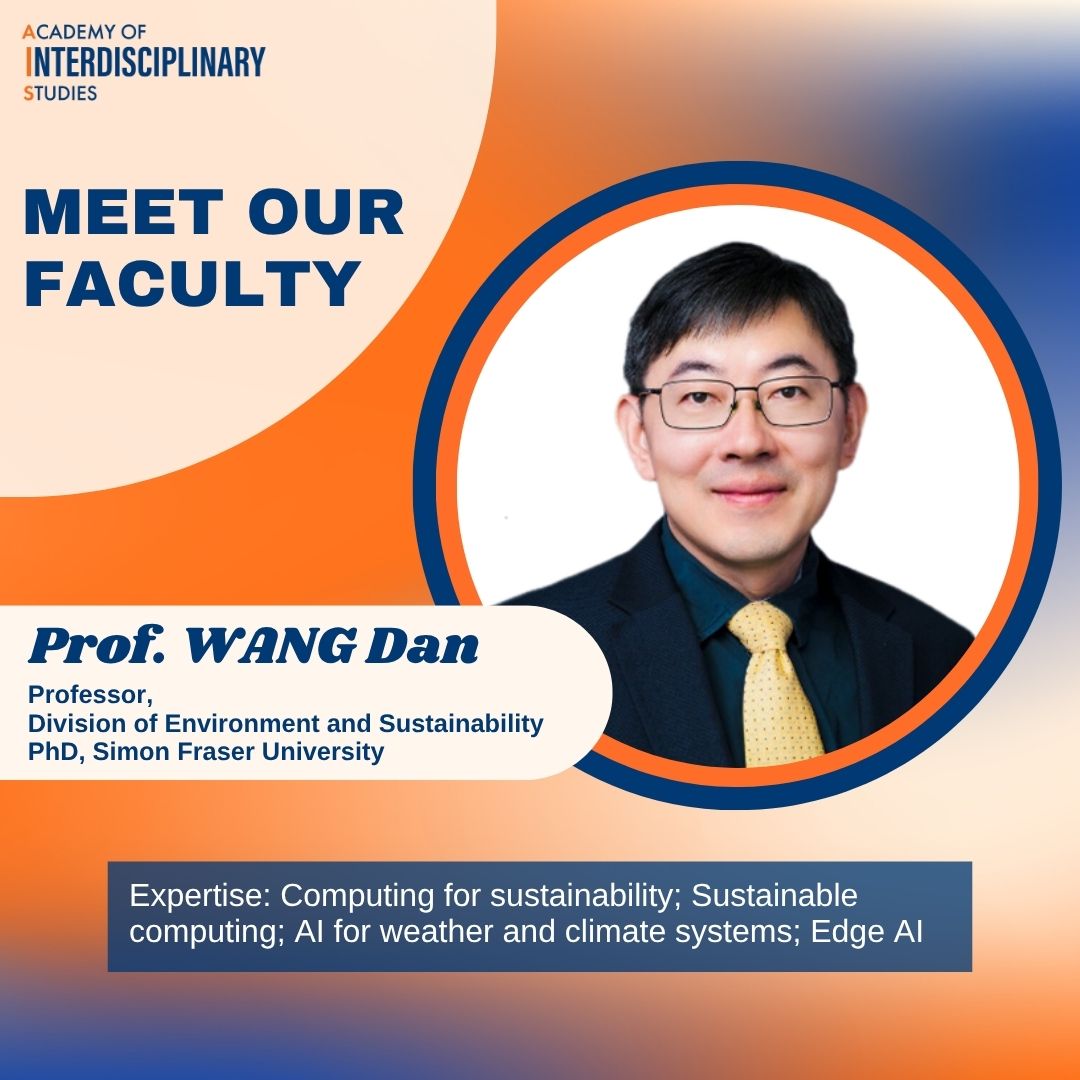Welcome Prof. WANG Dan (Professor, Division of Environment and Sustainability) who has recently joined HKUST!
With a rich background in computer science and a focus on the intersection of AI and energy systems, Professor Wang’s research explores how AI can transform our energy landscape and promote sustainability.
Read the full Q&A here to learn more about his insights, research expertise, advice for students, and even a fun fact about him.
-----
1. Could you tell us more about you e.g. where do you from and why joining HKUST, and something you are working on now e.g. current research, and course that you will teach in coming Spring term?
I was trained in computer science; and I was a professor in Computer Science at The Hong Kong Polytechnic University. Nonetheless, I work in the interdisciplinary area of AI systems and energy systems; specifically, we try to understand how AI systems can revolutionize our energy systems (e.g., power grids, buildings, EVs) and how AI systems consume energy (e.g., AI data centers). These are important for the overall sustainability of our society. As such, I feel like joining the Academy of Interdisciplinary Studies (AIS) and Division of Environment and Sustainability (ENVR) of HKUST a natural choice. I can work with a lot of domain experts here.
I plan to teach AI for sustainability, savior or troublemaker. We plan to teach students about AI foundations as well as the issues related to AI and sustainability. As you may imagine, AI can help on many fronts, e.g., waste classification, weather forecasting, efficient energy system controls. Yet AI also consumes a lot of energy. The carbon emission of training a state-of-the-art AI model LLaMA3 400B is roughly equal to 2000 return flights between New York and London. It is commonly believed that this will increase by another two orders in a few years’ time. We will look at AI from both sides.
2. What inspired you to specialize in this line of research?
I started working in computer networking systems. More than 10 years ago, scholars in computer science started working in interdisciplinary areas, such as EV, health, and energy systems. I ended up becoming specialized in energy systems and sustainability in general. This was not fully planned ahead of time. Luck, my expertise and efforts, advice and assistance from great people, and a little inside hope to make our society sustainable, have led me to this path. It is great to see that AI, if used wisely, can become a potential game changer in contributing to sustainability. I enjoy working in this area.
3. What impact do you want your work to have on society?
I hope my work can be integrated into industry systems. Many of my works did. In recent years, I have been working with government and standardization bodies to develop reference cases. As such, the impact of my work can go beyond individual companies and have a broader impact.
4. Do you have any advice for students interested in your research area?
I guess there is not a single solution to the sustainability problem. It is a joint and evolving effort. Students can start from small problems and gradually understand how to decouple grand challenges into small problems. Contribute to your community and enjoy the journey.
5. Could you share a fun fact about you?
I have been to almost all hiking trails in Hong Kong. Does this count?





